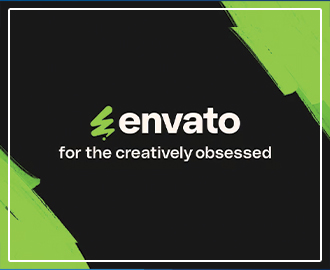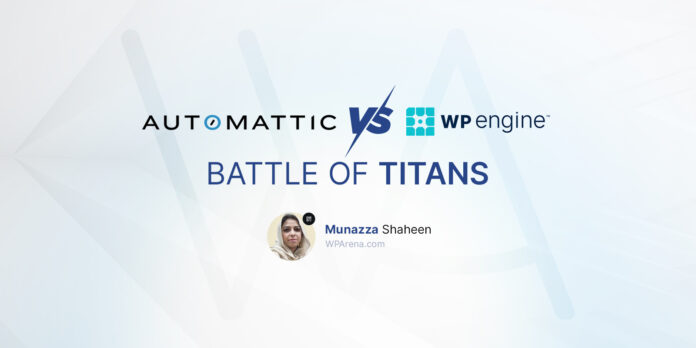As digital content and marketing get ever more and more complicated, more tools are designed to help us keep up.
A classic example is the development of content management systems, which are typically used in managing digital content for business and web. A CMS can be found in a variety of forms, from a simple app to a series of linked programs and plug-ins.
How thorough of a CMS you need really depends on your individual circumstances.
Relevant questions include things such as:
- How much content do I need to have scheduled?
- Am I looking for an app or a full program?
- Do I want plug-ins that help me to manage SEO within the content?
- How easy to use is the CMS I’m considering?
There are plenty of CMS possibilities out there, and the top web design companies have one common preference. WordPress is a popular platform to work with — and with good reason.
So how do you know if WordPress is the CMS of your dreams?
If You Need Something Easy To Use
Experiences, users, and updates all differ, but overall, WP is easy to use. It was designed for bloggers and content creators who don’t necessarily have a lot of coding or web design chops.
Some commenters on WordPress even say that it is perhaps the easiest content management tool available. And since it offers web design and development as well as blog hosting, it’s a one-stop-shop for many beginners.
WP, as a blogging site, includes a lot of free options, which are easy to switch around if you decide you want to try new things through trial and error. From content optimization to media, social media, and website optimization options, you get easy-to-install/uninstall plugins with step by step guides without much need from outside help.
The Yoast tool is a good example of this, giving users the options to optimize their content according to current SEO standards: you can set and link keywords, image alternative texts, title, description, and even readability of your content.
So if your website development skill level is on the low to moderate side, WP could be a good option for you.
If You Need Something Customizable
WordPress includes a lot of simple free layout and design themes. But if you want something a little more unique, there are also customizable options as well.
While the usual customization options apply, such as general layout, color and font choices, and so on in all free and paid themes, you can fully customize your website’s HTML too.
The best thing about WP customizability is that it is continuously evolving and updating; it’s at a high right now with the introduction of the new update, which allows for the use of blocks in creating your content.
These blocks are useful ways to create and personalize layouts, giving you a little more freedom with editing individual blocks rather than the entire post. This can also be turned off, however, if you need your layout editing to apply to the whole thing or prefer to edit the whole thing in HTML.
One of the most popular things about WP, though, is how, well, popular it is. Because of its ubiquity, coders and designers have put a lot of effort into creating unique themes over the years. You can browse WP themes via the WP site itself, through other theme sites like Themeforest, Colorlib, and similar, or even contact a WP web developer and request a spec WP theme all of your own.
The average paid WordPress theme costs $40.
If You Need a Simple Site, Such as a Blog
A big factor in whether or not you choose WP as your CMS will be the type of site that you want to run. WP works really well with more simple sites — such as blogs or single posts, which it was really created for anyway.
But if you want to start up a business and sell via your WP-run site, for example, it may not be the best option for you. Some experts recommend a site like Shopify for that avenue.
There are ways to do it in WP, of course. (There are ways around pretty much anything in web design with WP) Some of these methods involve plugins like WooCommerce, which assists with transactions.
But overall, WP is a better option for content-based sites or a blog, rather than a complex e-business site that will involve a lot of transactions.
This is reflected in the numbers, which shows 76.5 million WP blogs, and counting.
If You Want Yourself and Others to Be Able to Schedule
Precisely because it is so easy to learn to use, WordPress really lends itself well to being a joint project CMS.
For instance, you can easily set up admin and other users who can be given a variety of levels of authority to edit, change, and schedule content.
This is incredibly helpful for a small business owner who doesn’t have to schedule everything themselves, and who hires help to take over the management of their CMS.
If You Have a Tight Budget
Budgeting is pretty much always a concern, across the board. So if you have other things that you would rather spend your budget on, WordPress can be a great option.
In the world of CMS, WP is definitely an economic option. WordPress itself bills itself as “free and open source.”
This means that there are a lot of possibilities for content management that fall under that “free” umbrella.
But keep in mind that if you need a little bit more involved in content management, such as premium plug-ins, there will be added costs, such as the cited cost for a paid layout mentioned above.
Depending on your individual needs, you can expect to pay between $36 and $300 dollars per year. This is a big range, but it well illustrates how WordPress has been designed and developed to appeal to a range of users and their requirements.
Overall, though, if you’re just getting started with your blog or site and you don’t want to invest too much in content management, WP may be the most budget-friendly CMS in the market.
Comparing WP to Others
WordPress is by no means the only CMS option out there available for the hard-working webmaster and content strategist.
There are plenty of other CMS possibilities to look at, like Drupal, SquareSpace, Shopify, and Joomla.
- Shopify would be better for an e-commerce site.
- Squarespace may be easier for you to use than WP.
- Drupal is a little more customizable, though WP is fighting its way back up to the top, and Drupal has less support in the way of knowledgeable developers. It’s recommended more for users who have web development experience.
- Joomla offers a lot of flexibility in terms of individual posts, making it a favorite for bloggers who don’t rely heavily on text-content-based posts. But, like Drupal, it’s less beginner-friendly than WordPress and is recommended for those with some experience under their belt.
But the fact remains that WP is the most widespread and popular CMS to date, and has held on to that title for quite a while. And if your site matches the criteria listed above, then you too may choose to become another WP user.
The choice is up to you!





